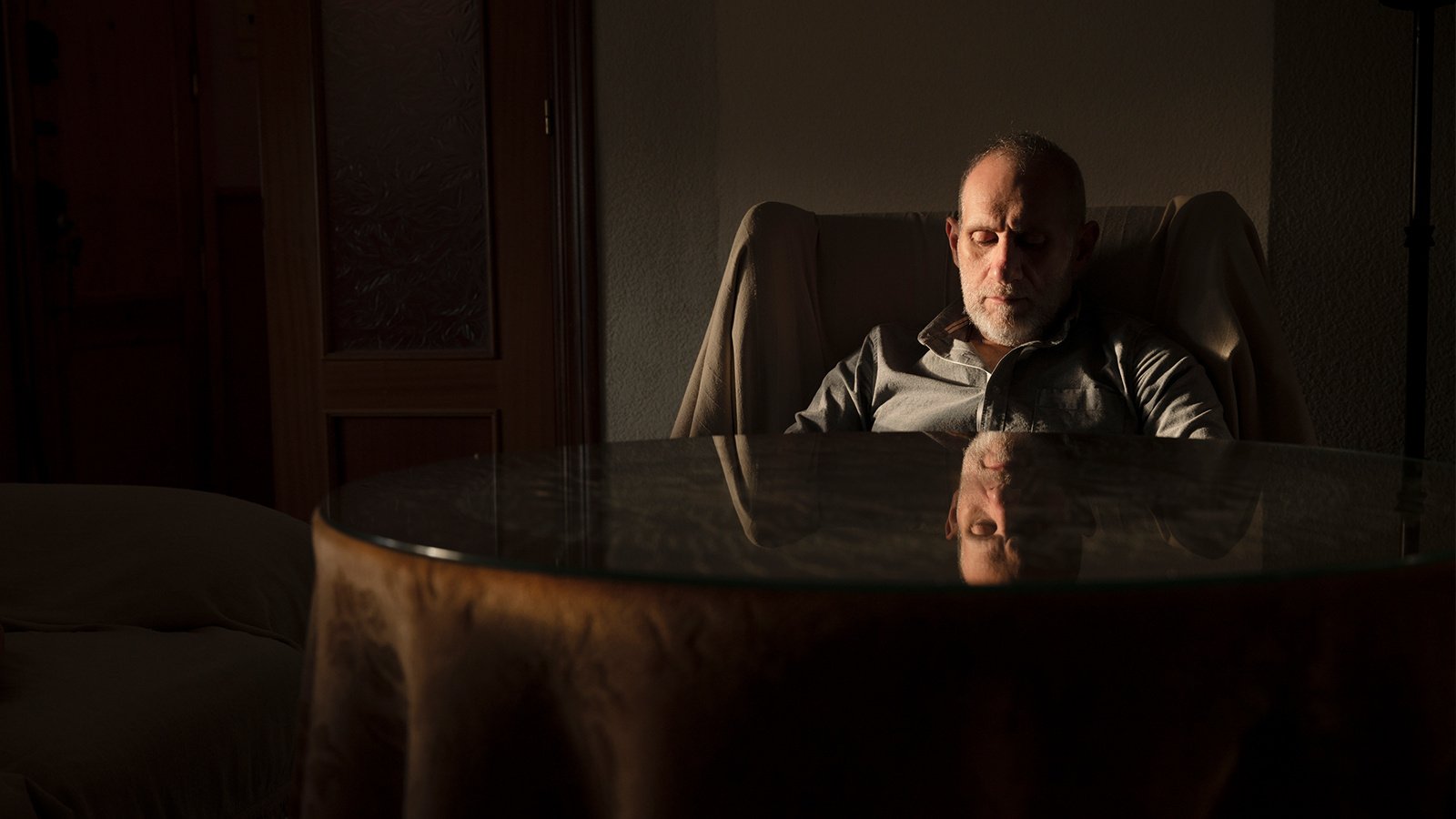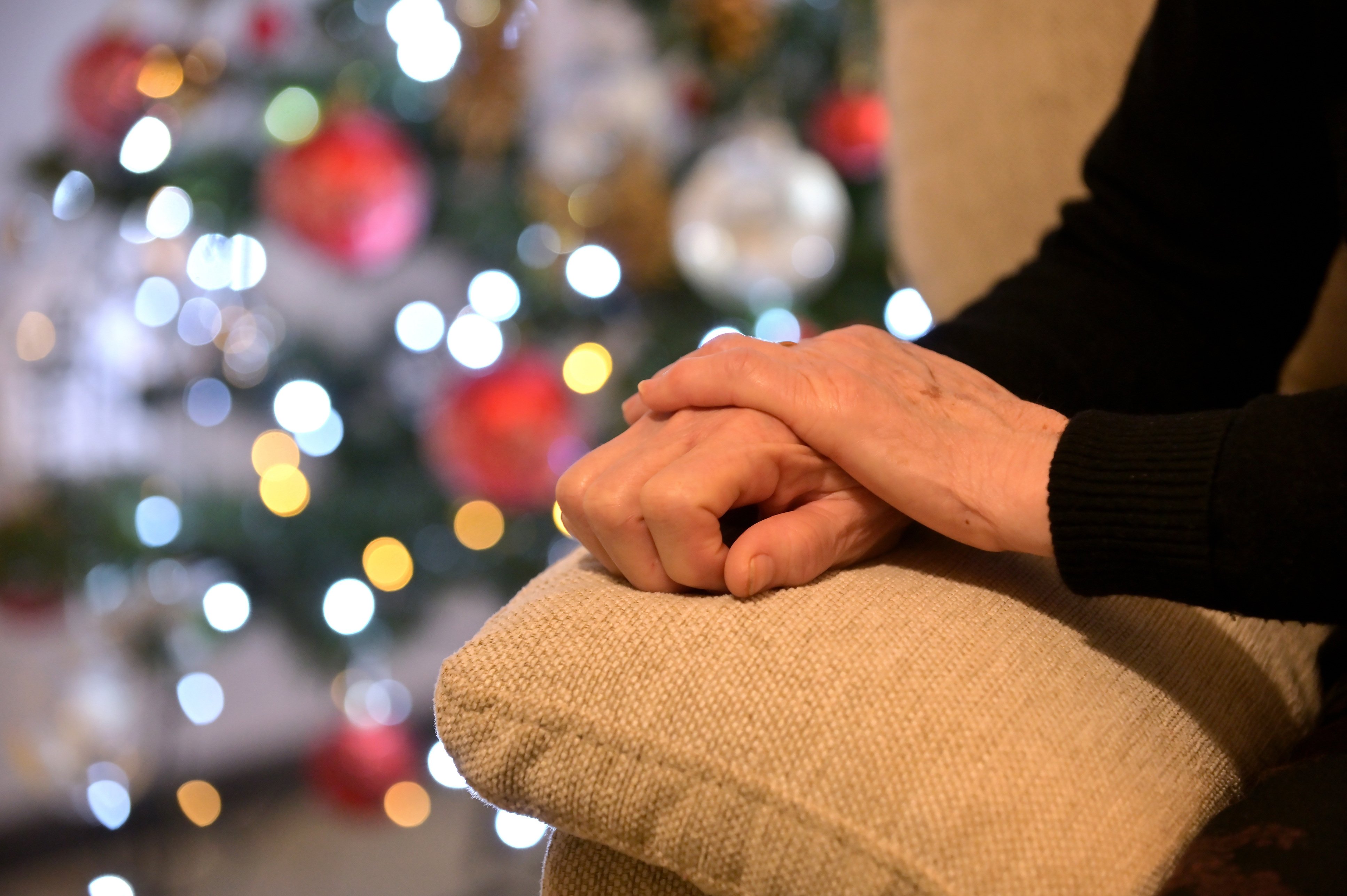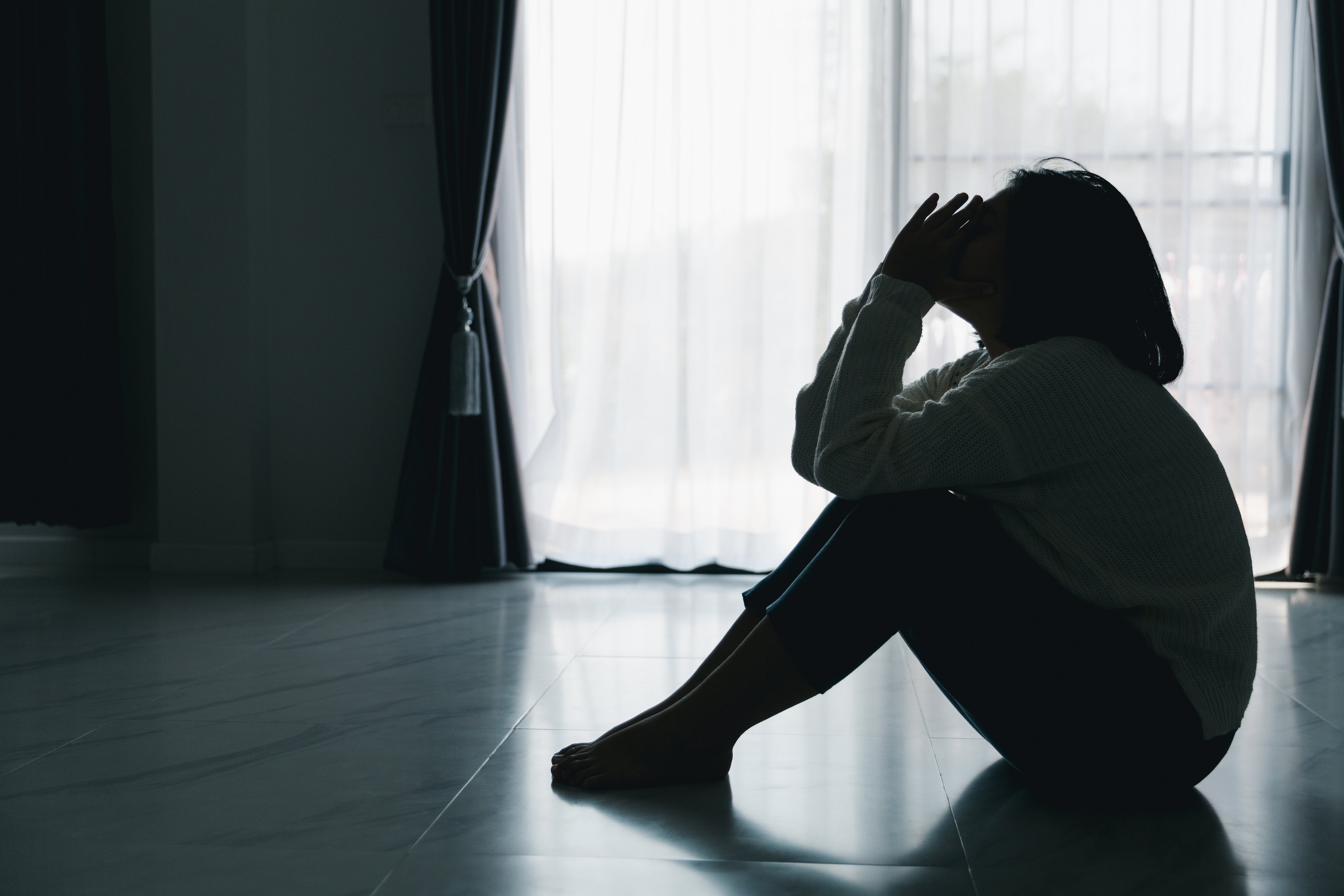Navigating the Silence: Life After Losing a Spouse

Your spouse was your confidante. Your best friend. Your other half. The one you shared the most important and mundane moments with. Life with your spouse was filled with laughter, countless heart-to-hearts, and routines and meals. And now they’re gone. Everything feels empty, lonely—and silent. As Bob, whose wife died, shares, “I lost my companion of 55 years. … [And] all of a sudden, I’m just alone. I had no purpose, nowhere to go, nothing to do. I was just so empty.”
You miss the sound of their voice, their laugh, the comforting whir of the power tools in the garage or pots in the kitchen that let you know they were close by, and even the pile of clothes they always left in the bathroom. You would give anything to have them back, even for a day, and you often find yourself listening to their old voicemails or watching home movies over and over because, for those brief moments, it’s like they’re beside you once again.
If you feel like you’ve lost a part of yourself, it’s important to know that this is normal. In fact, whatever you’re feeling right now, it’s understandable—and you’re not alone in what you’re experiencing. People who have faced the death of their spouse have walked this same hard road and found ways to adjust to the changes and honor their spouse in the process. You can too, and utilizing the right coping strategies will help.
This article will highlight the dangers of social isolation and present practical steps you can take to work through your feelings of loneliness.
Note: If you’re looking for a safe space to talk about what you’re going through and to hear from people who understand, you can learn more about GriefShare support groups here.
The dangers of loneliness & social isolation
Loneliness. It hits hard when you come home and are met with that deafening silence and when you slip into bed at night on your own. Mike, whose wife died, shares the pain of coming home to an empty house: “I would be out shopping, maybe out for dinner with friends. But when I came back home … [there was] nothing, just the clock ticking and the low hum of the furnace running. … It was overwhelming, not having somebody to come home to.” But loneliness can also strike unexpectedly. When you’re in a room full of people, you can still feel desperately alone.
 People are designed for social connection. In fact, it’s as essential for a person’s well-being as food and water. This is why experiencing your spouse’s death is so devastating. Your spouse was your most intimate relationship, and without that person here, it can feel like you’re starving for connection. Yet, even though you may crave companionship deep down, it often feels natural to self-isolate instead. You may not feel like being around people, or maybe you don’t want to deal with their comments or questions or pretend you’re doing okay when you’re not. The tendency to self-isolate is understandable, but if not addressed and managed, it can have devastating effects on your health.
People are designed for social connection. In fact, it’s as essential for a person’s well-being as food and water. This is why experiencing your spouse’s death is so devastating. Your spouse was your most intimate relationship, and without that person here, it can feel like you’re starving for connection. Yet, even though you may crave companionship deep down, it often feels natural to self-isolate instead. You may not feel like being around people, or maybe you don’t want to deal with their comments or questions or pretend you’re doing okay when you’re not. The tendency to self-isolate is understandable, but if not addressed and managed, it can have devastating effects on your health.
According to the US surgeon general’s Our Epidemic of Loneliness and Isolation, loneliness and social isolation are “associated with a 29% increase in the risk of heart disease and a 32% increase in the risk of stroke” as well as increase in the risk of “cognitive decline and … dementia in older adults, including Alzheimer’s disease.”
Furthermore, when you self-isolate, you’re more likely to experience depression and anxiety on top of loneliness; these feelings can snowball and increase inflammation, potentially leading to the widowhood effect, the phenomenon in which widowed spouses have an elevated risk of death.
So what’s the remedy? How can you overcome the urge to self-isolate and help soothe your feelings of loneliness? The answer comes down to seeking opportunities for connection and companionship.
Healing happens in community
Seeking out opportunities for connection and companionship might feel like the last thing you want to do right now, but taking this step forward is an essential way to find relief from the feelings of loneliness you’re experiencing. And these tips can help:
- Spend time with family and friends. It’s so easy to shut yourself off from the world and let grief become your identity, but connecting with your family and friends is a surefire way to overcome loneliness.
Krissie, whose husband died, shares what this looked like for her: “I spent time with my kids, and I made sure to get out of the house eventually and go do things. And then I made sure to be with people because so much of my healing was [found] there.”
- Get outside your house. The extreme emotional pain and loneliness that happens after losing a spouse has a unique way of making you want to withdraw inside yourself, to constantly examine and even live in that pain. But this is like fanning the flames; instead of helping, it will only add to the pain.
To remedy this tendency to focus inward, GriefShare cohost David Guthrie suggests, “You might take a walk in a park, play pickleball with neighbors, or have a lively conversation with friends about a hobby you enjoy. There are so many ways you can refresh yourself physically and emotionally.”
In your own life, how can you get outside physically? Do you have favorite parks nearby? Do you garden? Is there a sport you can enjoy with family or friends?
- Serve others. Another way to avoid constantly examining and living in your pain is to serve others. By helping those in need, you focus your attention outward instead of inward.
Carol, whose husband died, shares: “There are many avenues to get out and serve other people. It blesses them, and it helps to get that focus directed outward. … One thing I enjoy is visiting a nursing home and trying to cheer, bless, and encourage people who don’t have many visitors.”
What ways can you serve those around you? (Bring a meal to someone who is sick, volunteer at an animal shelter or library, etc.)
- Visit places where you can be around others. Some days, you might not feel like directly interacting with others, but simply being in a space where people congregate can help you feel less alone.
Fred, whose wife died, shares what worked for him: “I forced myself to go out to nonthreatening places where I could be around people (like the gym). They didn’t know who I was, and I could say ‘hi’ and talk to them and see people I recognized.”
Other ideas include visiting a park, community center or event, church, etc.
- Remember that God is walking alongside you. It’s easy to feel completely and totally alone after the loss of your spouse, like no one could possibly understand the depth of your pain and that deafening silence. However, it’s important to remember that you’re not alone in this. In your deepest moments of grief, God is here. He understands what you’re going through; He’s present; and He wants to help.
While it can be difficult to feel God’s presence, Carol, whose husband died, found God’s presence in the people around her. She shares: “Some of the more practical things that a person can do to know that God is near to them is to ask God for the eyes to see Him. One of the most endearing ways to do that is to look for God in His people. So, I make a diagram for myself. I put a person in the center of the diagram and then list the characteristics I see in them that I know God is working into their lives. For instance, with a friend who’s compassionate, I put that person’s name and then list ‘compassionate, thoughtful, caring.’ [Then record ways that person is showing compassion and thoughtfulness.] That is a practical way I can see God approaching me in love.”
- Join a support group. Sometimes it can feel exhausting being around people who don’t understand the loneliness and isolation you’ve been experiencing—but oh, how much relief it can bring when you meet other people who understand!
By joining a grief support group, you can connect with other people who have lost a spouse, giving you a safe space to share your story and learn how individuals have made it through. Fred shares how a support group helped him after his wife’s death: “I joined the group and started to hang out with some of those guys and go to lunch. The group was a safe place of people who were like me.”
Looking for a grief support group near you or online? Find a GriefShare group. You might also be interested in attending a Loss of a Spouse 2-hour seminar.
You’re not alone in this
Losing a spouse can make you feel so desperately lonely, but you’re not alone in this experience of grief. GriefShare is here for you. Find more practical strategies for navigating life after loss by creating a free GriefShare account, which will give you access to online videos, articles, and more.


